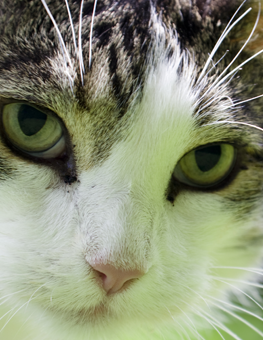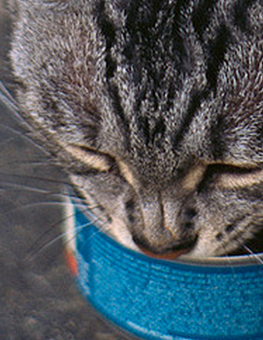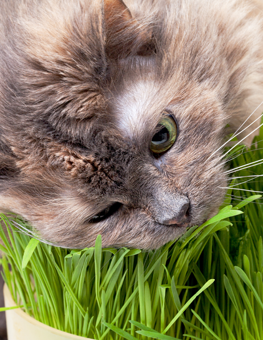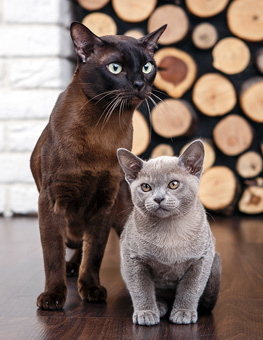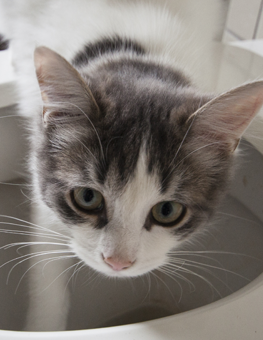Cat Food Allergies: Is Your Feline Sensitive to Seafood?
Although it is not very common, cats can be allergic to fish and seafood.
Buster has been eating the same brand of cat food for many years but sometimes he becomes very itchy with inflamed skin around his face, head, abdomen, limbs, paws and groin. He occasionally scoots his bottom on the carpet and sometimes starts vomiting or having soft stool when he eats specific flavors of food.
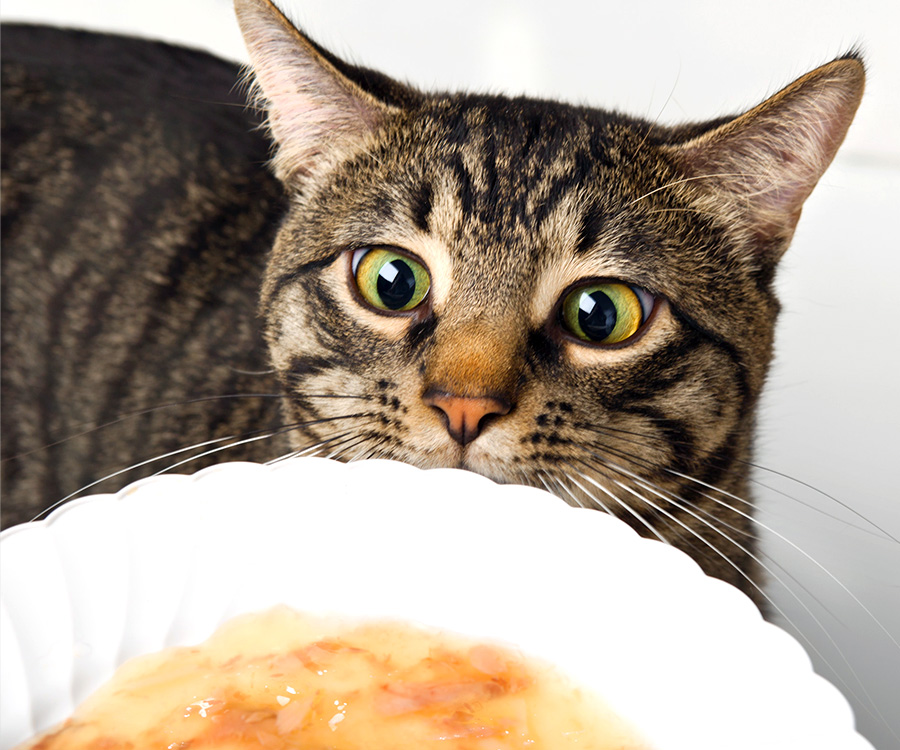

Just like people, cats can be allergic to specific things, like seafood.
After some detective work, the seafood flavors seem to be the culprit for his troubles. All other foods don’t seem to upset his skin and belly, so maybe he has an allergy to fish or shellfish!
You may be asking, “Aren’t cats supposed to love fish? Buster always appreciates a little treat with seafood flavor”. Interestingly, just like people can be allergic to specific things, so can cats, even if they love the taste!
Identifying Cat Food Allergies
Although it is not very common, cats can be allergic to fish and seafood. This usually comes to light after several veterinary visits for persistent scratching, skin infections, diarrhea, and vomiting. Visits for blood work and supportive care occasionally can round out some of the reasons for becoming a frequent flyer at your local veterinary office. It can be a frustrating path.
Once you know the offending allergen (usually diagnosed by a veterinary dermatologist after trying an elimination diet trial and/or skin testing) you can start trying to find a diet and treats that will allow Buster to eat freely without any discomfort.
Treating & Managing Your Cat's Allergies
One of the most important things to do is clear any infection Buster has right away. Using medication while doing a diet trial or waiting for the results of testing is very important. If there are self-inflicted wounds from over-grooming and scratching or yeast overgrowth on the skin or in the ears. Buster needs help to rebuild his skin barrier and let the immune system take a break.
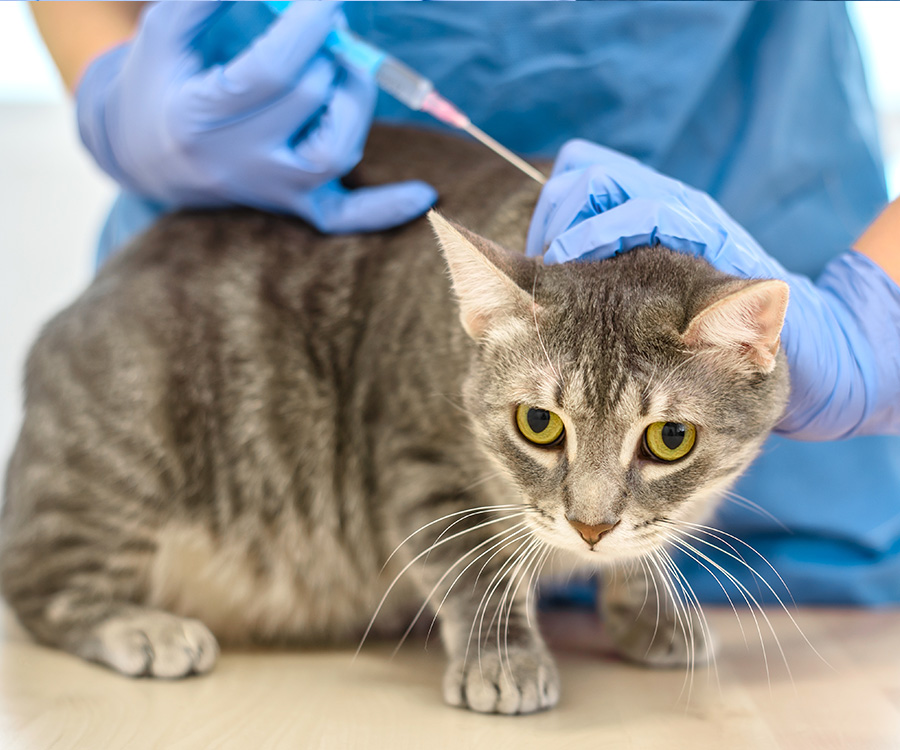

Some pets under veterinary supervision may take injectable medication for allergies.
Once the skin is clear of infection and you know the cause of the allergy, read your pet food labels! Just like you would do with the food you’re bringing home for yourself and those in your care. Be aware that some food pictures on bags and packaging may not picture all of the proteins. If it has been confirmed that there is a seafood allergy, always check the ingredients for items such as fishmeal and other fish by products that could trigger an allergic flare-up.
In some cases, a specialty diet may be needed to ensure that your pet is not exposed to allergens. Some pets under veterinary supervision may take oral medication or injectable medication for allergies to build their tolerance and then may tolerate small amounts of seafood. Doing this is not advised unless your pet is on a specific medication made especially for them under the guidance of a Dermatologist.
If your pet can be managed with over-the-counter food, that’s ideal! Unfortunately, many pets cannot do this and may suffer occasional flare-ups. There are also medications available from your veterinarian that can help to make their life easier (and yours by proxy). Some of these include allergy medications which will decrease the body’s response to the allergen. Both are acceptable ways of managing mild to moderate allergies or occasional flare-ups in well-controlled cats.
Severely allergic cats (like Buster) should be seen by a dermatologist to ensure that the allergen is pin-pointed. This allows your feline friend to get the best care and have the most comfortable life going forward without any allergy symptoms holding them back.



